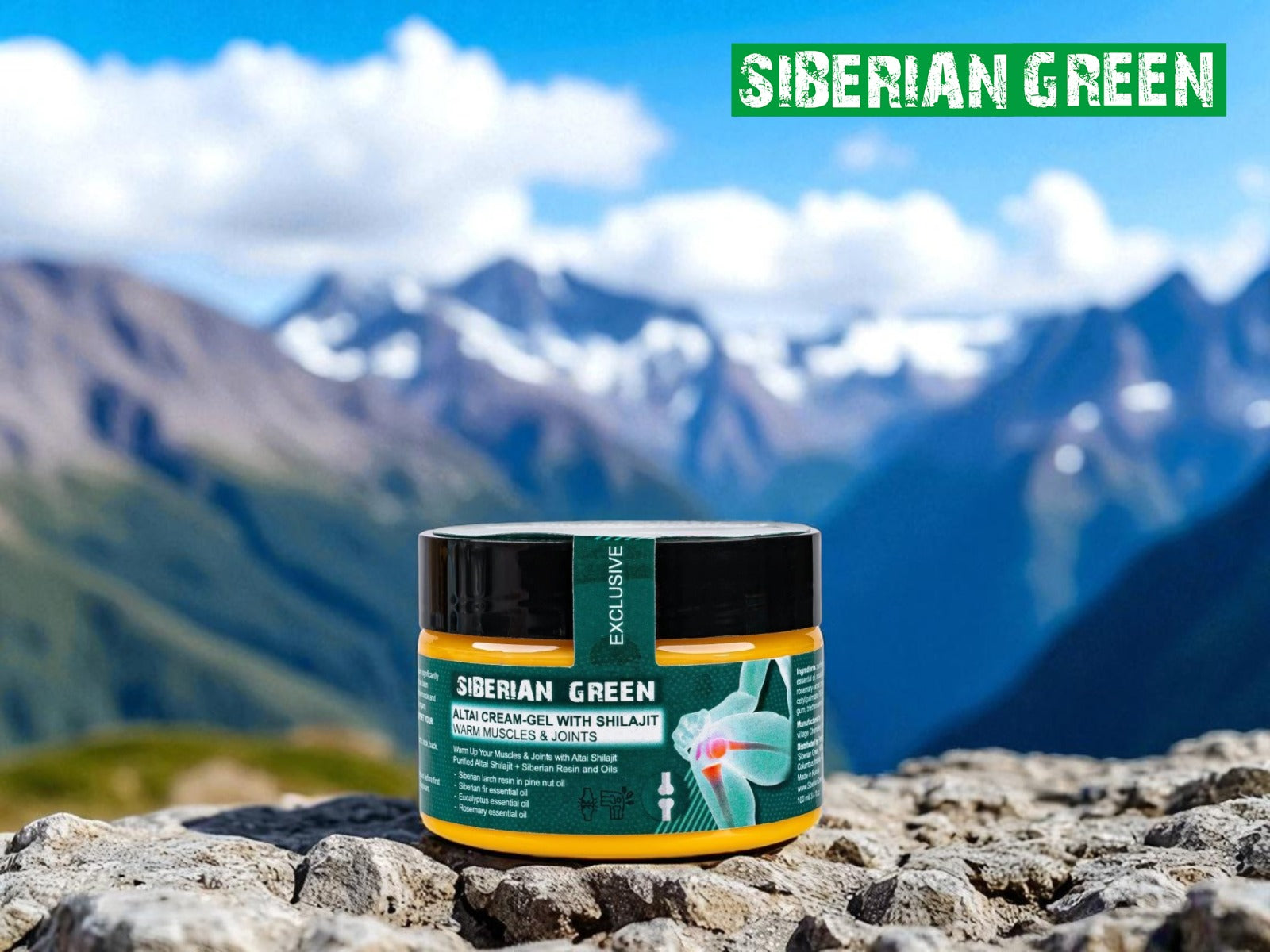Joint discomfort, or arthralgia, is one of the most common health concerns among Europeans today. It can arise from inflammation (arthritis), cartilage degeneration (osteoarthritis), previous injuries, or autoimmune disorders.
Everyday factors such as excess body weight, limited physical activity, repetitive motion, and ageing also play a major role in weakening joint health.
While conventional painkillers may provide temporary relief, their long-term use often brings side effects such as stomach irritation or dependency. That’s why many people across Europe are turning to natural joint pain solutions, plant-based supplements, and holistic self-care routines that support the body’s natural healing processes.
Herbal Remedies for Joint Strength and Flexibility
1. Shilajit (Natural Mountain Resin or Mumijo)
Known as a mineral-rich resin formed in high-altitude mountain regions, Shilajit contains more than 50 trace minerals, amino acids, and humic substances.
It may help promote tissue regeneration, reduce inflammation, and restore cartilage integrity. When used both internally and topically, Shilajit supports faster recovery after injuries and helps ease morning stiffness associated with arthritis and osteoarthritis.
2.
Triple-Action Herbal Synergy: Ashwagandha, Shilajit & Turmeric
This botanical combination is gaining popularity in European wellness routines for its comprehensive properties.
--- Ashwagandha may act as an adaptogen, helping regulate cortisol (the stress hormone linked to inflammation).
--- Turmeric (Curcumin) generally helps block pro-inflammatory enzymes, easing stiffness and promoting flexibility.
--- Shilajit typically supports collagen production and overall joint resilience.
Together, these natural actives work synergistically to promote mobility, joint comfort, and long-term musculoskeletal balance.
3. Rosehip & Apple Infusion – Daily Joint Nourishment
A fragrant herbal tea made from rosehips and apples offers a natural source of vitamin C, antioxidants, and galactolipids. These nutrients usually promote collagen synthesis and help reduce inflammatory processes in joint tissues.
A cup of this fruity infusion each day may support cartilage renewal and overall joint flexibility, making it an easy and enjoyable addition to any wellness routine.
4.
Herbal Warming Cream for Muscles and Joints
For quick relief, many Europeans use warming herbal creams formulated with Shilajit, larch resin, and essential oils from fir, rosemary, and eucalyptus. These ingredients may stimulate microcirculation, relax muscle tension, and deliver immediate soothing comfort.
They are especially useful for people experiencing post-exercise soreness, cold-weather stiffness, or age-related joint fatigue.
Why Europeans Prefer Natural Joint Care
--- Higher Absorption: Herbal nutrients are usually easier for the body to assimilate than synthetic compounds.
--- Addressing Root Causes: Natural remedies typically aim to balance inflammation, nutritional deficiencies, and chronic stress.
--- Lower Risk Profile: Fewer side effects make them generally suitable for regular, long-term use.
--- Synergistic Benefits: Combinations like Shilajit + Turmeric may enhance anti-inflammatory and regenerative effects.
A holistic approach doesn’t just numb pain — it supports your body’s innate capacity to repair and maintain healthy joints naturally.
Everyday Habits for Healthy Joints
Nutrition Tips
Avoid: Processed foods, refined sugar, white bread, and excessive red meat — all of which may increase inflammation.
Include:
- Omega-3-rich fish (salmon, sardines, trout)
- Silicon sources (cauliflower, peas)
- Turmeric, ginger, and leafy greens for their natural anti-inflammatory effects.
Physical Activity
Engage in low-impact exercises such as walking, yoga, swimming, or cycling.
Avoid prolonged high-impact activities (e.g., running on hard surfaces) if you suffer from osteoarthritis or joint sensitivity.
Weight Balance
Every extra kilogram adds roughly four kilograms of pressure on the knees.
Even small, sustainable weight reduction can significantly improve comfort and mobility.
Rest and Regeneration
Aim for 7–8 hours of restful sleep nightly. Deep sleep allows cartilage and connective tissues to repair and regenerate efficiently.
Important Considerations
Always consult a healthcare professional before starting any new supplement, particularly if you have pre-existing conditions or are on medication.
Choose trusted European brands that adhere to EU quality and safety standards.
Combine natural remedies with balanced nutrition, regular exercise, and mindful stress management for the best results.
Joint discomfort often signals deeper imbalances — whether inflammation, nutritional deficiency, or lifestyle stress.By embracing natural solutions such as Shilajit, Ashwagandha, Turmeric, and Rosehip, along with balanced living, Europeans can restore mobility, flexibility, and comfort — naturally, safely, and sustainably.
This holistic approach to joint care not only eases discomfort but also strengthens the body for years to come.
How does Shilajit help with arthritis and joint stiffness?
Shilajit, known as mountain resin, is rich in minerals, fulvic acid, and amino acids. It may support joint tissue repair, enhance collagen production, and reduce inflammation associated with arthritis and osteoarthritis. Many Europeans use Shilajit to improve mobility, reduce morning stiffness, and enhance energy levels naturally.
How does stress affect joint pain?
Chronic stress elevates cortisol levels, which may increase inflammation in the body. Adaptogenic herbs such as Ashwagandha and Rhodiola Rosea, popular across Europe, may help balance stress hormones and support overall joint comfort.
Can I take natural joint supplements with prescribed medication?
Most herbal supplements are safe, but it’s best to consult your GP or pharmacist before combining them with prescription medicines, particularly blood thinners or anti-inflammatories. This ensures safe and effective use in line with European health regulations.
How can I prevent joint problems as I age?
Preventative care is key:
Maintain a balanced diet rich in vitamin D and omega-3s
Stay active with low-impact exercises
Keep a healthy body weight
Consider collagen and herbal joint support supplements by your 40s or 50s to slow down cartilage wear.







